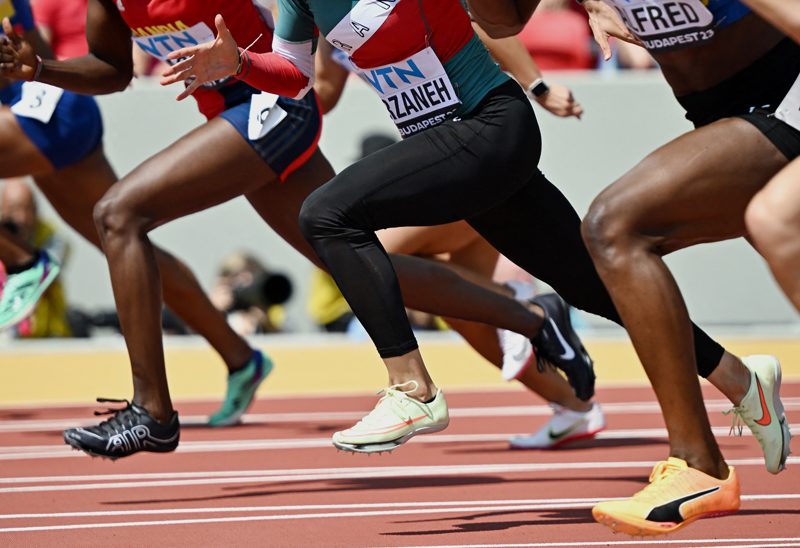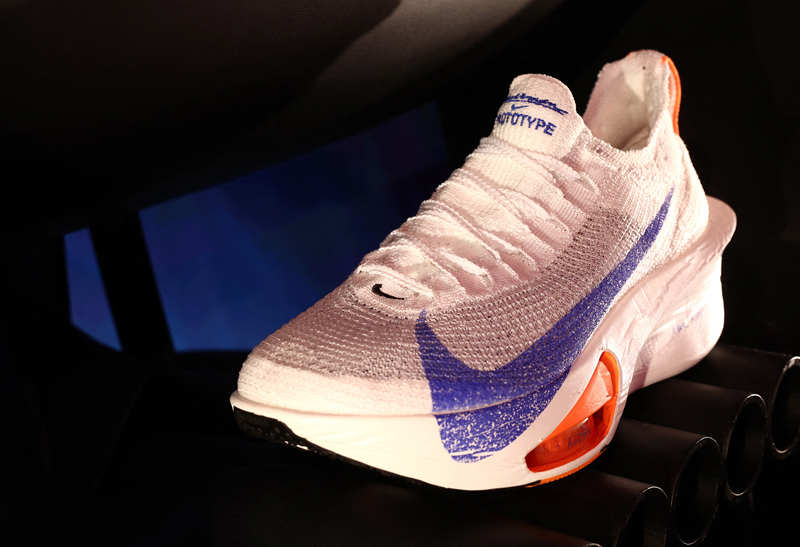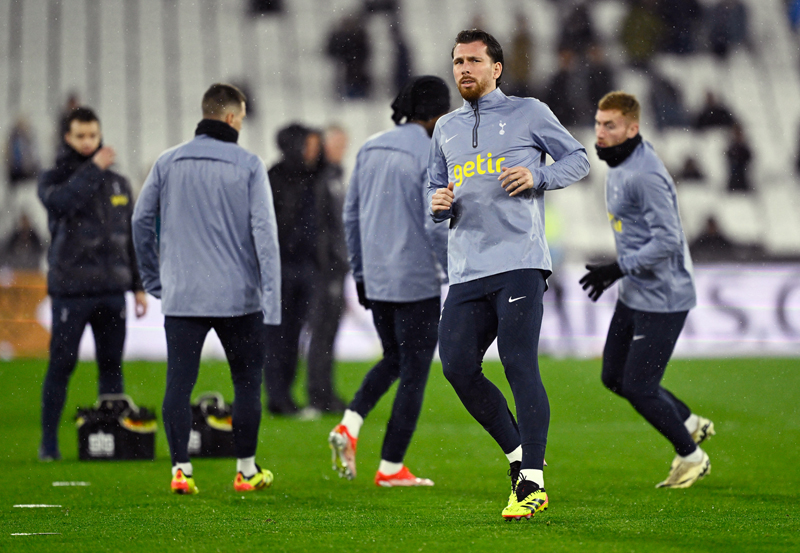Beetroot juice: can you feel the force?

Can nitrate-rich beetroot juice deliver strength benefits in addition to aiding endurance? SPB looks at the most up-to-date research
It was around 15 years ago that scientists began to get very excited about the use of beetroot juice to enhance endurance performance. Beetroot juice is an excellent source of natural dietary nitrate, which can be converted to nitric oxide in the body. That’s important because nitric oxide is involved in modulating (increasing) blood flow to muscles, potentially improving the efficiency of muscular contraction and energy production.Beetroot and endurance
In a landmark study, scientists investigated the effect on sub-maximal exercise of extra nitrate as a supplement (in this study as sodium nitrate rather than from beetroot juice)(1). What the scientists found amazed them. The oxygen cost at sub-maximal levels of exercise was significantly reduced after nitrate supplementation compared with placebo – in other words, the subjects taking nitrate became more efficient at using oxygen. Over the four lowest work rates, their oxygen efficiency jumped from 19.7 to 21.1%. Or to put it another way, the same work output required less oxygen after nitrate supplementation compared to when nitrate wasn’t taken.A follow-up study looked at the effects of giving 500mls of beetroot juice (containing nearly 700mgs of naturally occurring nitrate) for six consecutive days on cycling performance(2). It found that not only was time-to-exhaustion was significantly extended when beetroot juice was taken, but that the aerobic responses of the athletes were faster at the start of exercise. Further studies since have confirmed the potential of dietary nitrate for endurance athletes especially in non-elite populations. These include studies on time-trial cyclists(3,4) and runners(5).
Caveats on beetroot/nitrate for endurance
While the evidence for the benefits of beetroot juice/nitrate is robust for sub-maximal (ie lower intensity) exercise, more recent research indicates that the higher the exercise intensity, the smaller the magnitude of the potential benefits. Secondly, there’s persuasive evidence that higher the level of your fitness, the less you stand to gain from nitrate/beetroot juice consumption – indeed elite athletes may actually derive zero benefits(6,7). Why are highly trained athletes less likely to benefit from beetroot juice/nitrate? The most likely explanation is that dietary nitrate works by improving the efficiency of blood flow to the working muscles. But in highly trained endurance athletes, this efficiency is already extremely high so giving supplemental nitrate has little effect.Beetroot/nitrate for strength?
To date, the majority of research regarding dietary nitrate and exercise performance has focused on endurance exercise, with relatively little attention given to resistance exercise and potential strength benefits. However, it has been suggested that strength and resistance-trained athletes may benefit from nitrate supplementation through an increased force output and fatigue reduction of the fast twitch muscle fibers via improved calcium handling(8). Other ways in which nitrate supplementation could potentially contribute to improved strength exercise performance include:- Enhanced neuromuscular efficiency (ie improved activation and firing of muscle fibers)(9).
- An increase in the efficiency of the phosphocreatine energy system (very short-term high power output), which relies on excellent blood flow for rapid replenishment(10).
- The fact that fast-twitch type II muscle fiber function may be preferentially enhanced by nitrate due to its increased capacity for nitrate storage and improved blood flow(11).
Importantly, this was a randomized double-blind (neither researchers nor subjects know who is taking what) crossover trial, which is one of the most rigorous experimental designs in science. A crossover design in particular – where a trial takes place with an intervention and placebo group, which are then reversed after the initial set of results (ie those who took the nitrate were switched to the placebo group and vice-versa) – is lengthier and more costly to perform but is more statistically powerful in its conclusions.

In this study, twelve healthy recreationally trained men performed an incremental strength test (back squat and bench press), performing three sets at 60%, 70%, and 80% of their one-rep repetition maximum (1-RM) one two occasions:
- With the consumption of 70mls beetroot juice (containing 400mgs of nitrate) consumed 120 minute before the trial.
- With the consumption of the same volume of an inert placebo 120 minutes before.
The results showed that in the 60% and 70% rep-max sets in the back squat exercise, a higher number of reps were recorded with pre-exercise beetroot juice compared to those in the placebo trials (see figure 1). Pre-exercise beetroot juice also increased the number of reps in the 80% rep-max set, but the increase wasn’t great enough to attain statistical significance. In the bench press exercise, marginally more reps were performed when consuming the beetroot juice, but overall, it made no significant difference to the overall performance. Taking both exercises as a whole, the beetroot juice gains in the back squat 60% and 70% sets were large enough to produce a significant positive effect across both exercises!
Figure 1: Number of reps performed in the back squat and bench press exercises

In the back squat, the number of reps in the 60% and 70% or 1-RM sets, and the overall number of reps significantly increased. However, this effect was not observed in the bench press exercise.
More evidence
Another study carried out last year investigated the effects of beetroot juice consumption on muscle function – specifically power production during concentric and eccentric muscle contractions in ‘all-out’ half squat repetitions(13). Once again, this study was designed using a randomized, double-blind placebo-controlled crossover structure, which as we’ve noted, is considered the most robust of all study designs and which produces a high quality level of evidence.In this study, eighteen adult males (average age 23 years) completed two experimental testing sessions on two separate occasions using an identical format. Both sessions comprised of four sets of eight all-out half-squat repetitions, with each set completed with a different moment of inertia (basically a measure of accelerative forces around a fixed axis). These moments were 0.025, 0.050, 0.075 and 0.100kgm-2. Lower limb power outputs of the subjects were assessed during the half-squats using a flywheel device, which allowed participants to maximally complete both concentric and eccentric contractions. The only difference between the two sessions was what the subjects consumed two and a half hours beforehand; in the beetroot juice trial, they consumed 140mls of a nitrate-rich beetroot juice concentrate (containing 800mgs of nitrate) while in the placebo trial they consumed the same amount of a similar tasting drink containing no nitrate.
The results showed that compared to the placebo, beetroot juice supplementation increased average power outputs both during the concentric and eccentric movement phases to a similar extent, and regardless of the moment of inertia. Moreover, there were comparable increases in peak power output during both the concentric and movement phases with beetroot juice supplementation. The researchers concluded that: ‘consuming beetroot juice improves skeletal muscle contractile function, and might have implications for enhancing sports performance in events where muscle power output is a key performance determinant’.
Latest data
Coming right up to date, a study published earlier this month in the journal Sports Health also suggests real and significant strength and power benefits from supplementing beetroot juice/nitrate(14). In this study, researchers analyzed the effects of pre-exercise beetroot juice ingestion on the production of explosive force and muscular endurance in physically active, trained women. And once again, this study was designed as a double-blind, crossover randomized trial, so providing robust evidence.Fourteen physically active women performed a batch of strength and power tests on two separate occasions. These consisted of the following:
- A countermovement jump (CMJ) test.
- A back squat test for assessing velocity and power at 50% and 75% of one-repetition maximum (1RM).
- The number of repetitions performed in a muscular endurance test consisting of 3 sets at 75% of 1RM in a resistance training protocol comprising 3 exercises (back squat, leg press, and leg extension).
- A significantly greater maximum height was achieved in the CMJ after consuming beetroot juice compared with the placebo.
- In the back squat test performed at 50% 1RM, the participants achieved a higher average velocity (+6.7%), peak velocity (+6%), average power (+7.3%) and peak power (+6%) when the beetroot juice was consumed.
- In the muscular endurance test, pre-exercise beetroot juice significantly increased performance compared with the placebo drink.
Caveats and practical implications
What can we deduce from the recent research? If your sport requires high levels of strength, strength-endurance or power, should you consider using pre-exercise nitrate (in the form of beetroot juice)? The recent evidence is certainly promising for recreationally-trained athletes, and particularly in events requiring strength-endurance (ie where muscular intensities are in the 50-70% of 1RM range) and where the focus is on lower-body power production. However, there are caveats. In a study last year on maximal strength and CMJ performance, six days of supplementation of 140mls per day of beetroot juice followed by exercise testing three hours after the last dose did NOT produce any significant benefits in recreationally fit males(15). One possibility for these negative findings could be that the beetroot juice was consumed three hours before exercise, compared to 2-3 hours in the studies above (ie the p hysiological effects produced by the nitrate had worn off).But there are other reasons to be cautious; as with the studies on endurance and beetroot juice/nitrate, it may be that the higher your level of fitness and sports participation, the less strength benefits you stand to gain from nitrate. Looking at the recent scientific literature on beetroot juice and performance at the elite level in sports requiring strength and explosive power, we can see a number of examples of this. These include:
- A study on nine professional tennis players who saw no gains in a range of performance measures of 3-set match play when taking pre-exercise beetroot juice(16).
- Another study on pro tennis players preparing for the forthcoming season; there was no improvement in serve velocity, countermovement jump (CMJ) or handgrip strength with pre-exercise beetroot juice(17).
- A study on highly trained basketball players showing beetroot juice was not effective in improving jump height, isometric handgrip strength, sprint, agility or physical match requirements after beetroot juice(18).
Therefore, if you are not in the elite category and your sport and/or training involves bouts of high-intensity work or bursts of high/explosive power, beetroot juice/nitrate supplementation could be worth a spin. Being a natural product packed with antioxidants, there are no real downsides to beetroot juice – apart from the cost, which is potentially a real issue for non-funded athletes - especially given the steep rises in the cost of food and fuel we are experiencing currently! If you are on a budget, perhaps saving your hard-earned and focusing on cheaper supplements proven to work such as creatine, caffeine and post-exercise whey protein may be a better option!
References
- Acta Physiol (Oxf). 2007; 191(1):59-66
- J Appl Physiol. 2009 Oct;107(4):1144-55
- Med Sci Sports Exerc. 2011 Jun;43(6):1125-31
- Int J Sport Nutr Exerc Metab. 2012 Feb;22(1):64-71
- J Acad Nutr Diet. 2012 Apr;112(4):548-52
- Scand J Med Sci Sports. 2013 Feb;23(1):e21-31
- Int J Sport Nutr Exerc Metab. 2017 Jun;27(3):255-263
- Physiol. 2012;590:3575–3583
- Am. Coll. Nutr. 2016;35:100–107
- Appl. Physiol. 2009;107:1144–1155
- 2017;9:314
- 2020 Jun 28;12(7):1912
- J Sci Med Sport. 2021 Jan;24(1):80-84
- Sports Health. 2022 May 21;19417381221083590
- Eur J Sport Sci. 2021 Jun;21(6):871-878
- J Am Nutr Assoc. 2022 Jan;41(1):30-37
- 2020 Feb 23;12(2):584
- 2020 Jan 9;12(1):188
- 2017 Mar 22;9(3):314
You need to be logged in to continue reading.
Please register for limited access or take a 30-day risk-free trial of Sports Performance Bulletin to experience the full benefits of a subscription. TAKE A RISK-FREE TRIAL
TAKE A RISK-FREE TRIAL
Newsletter Sign Up
Testimonials
Dr. Alexandra Fandetti-Robin, Back & Body Chiropractic
Elspeth Cowell MSCh DpodM SRCh HCPC reg
William Hunter, Nuffield Health
Newsletter Sign Up
Coaches Testimonials
Dr. Alexandra Fandetti-Robin, Back & Body Chiropractic
Elspeth Cowell MSCh DpodM SRCh HCPC reg
William Hunter, Nuffield Health
Keep up with latest sports science research and apply it to maximize performance
Today you have the chance to join a group of athletes, and sports coaches/trainers who all have something special in common...
They use the latest research to improve performance for themselves and their clients - both athletes and sports teams - with help from global specialists in the fields of sports science, sports medicine and sports psychology.
They do this by reading Sports Performance Bulletin, an easy-to-digest but serious-minded journal dedicated to high performance sports. SPB offers a wealth of information and insight into the latest research, in an easily-accessible and understood format, along with a wealth of practical recommendations.
*includes 3 coaching manuals
Get Inspired
All the latest techniques and approaches
Sports Performance Bulletin helps dedicated endurance athletes improve their performance. Sense-checking the latest sports science research, and sourcing evidence and case studies to support findings, Sports Performance Bulletin turns proven insights into easily digestible practical advice. Supporting athletes, coaches and professionals who wish to ensure their guidance and programmes are kept right up to date and based on credible science.









